Related Research Articles

A silent film is a film with no synchronized recorded sound. Though silent films convey narrative and emotion visually, various plot elements or key lines of dialogue may, when necessary, be conveyed by the use of inter-title cards.

Grand Hotel is a 1932 American pre-Code drama film directed by Edmund Goulding and produced by Metro-Goldwyn-Mayer. The screenplay by William A. Drake is based on the 1930 play of the same title by Drake, who had adapted it from the 1929 novel Menschen im Hotel by Vicki Baum. To date, it is the only film to have won the Academy Award for Best Picture without being nominated in any other category.

Greta Garbo was a Swedish-American actress and a premiere star during Hollywood's silent and early golden eras. Regarded as one of the greatest screen actresses of all time, she was known for her melancholic and somber screen persona, her film portrayals of tragic characters, and her subtle and understated performances. In 1999, the American Film Institute ranked Garbo fifth on its list of the greatest female stars of classic Hollywood cinema.

Napoléon is a 1927 French silent epic historical film, produced, and directed by Abel Gance that tells the story of Napoleon's early years. It is also the only film to use Polyvision. On screen, the title is Napoléon vu par Abel Gance, meaning "Napoleon as seen by Abel Gance". The film is recognised as a masterwork of fluid camera motion, produced in a time when most camera shots were static. Many innovative techniques were used to make the film, including fast cutting, extensive close-ups, a wide variety of hand-held camera shots, location shooting, point of view shots, multiple-camera setups, multiple exposure, superimposition, underwater camera, kaleidoscopic images, film tinting, split screen and mosaic shots, multi-screen projection, and other visual effects. A revival of Napoléon in the mid-1950s influenced the filmmakers of the French New Wave. The film used the Keller-Dorian cinematography for its color sequences.
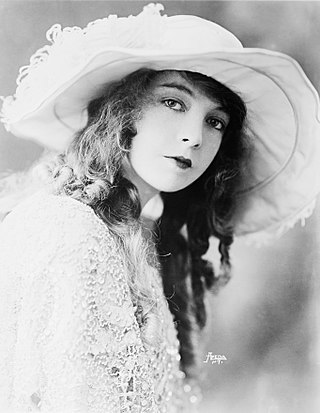
Lillian Diana Gish was an American actress. Her film-acting career spanned 75 years, from 1912, in silent film shorts, to 1987. Gish was called the "First Lady of American Cinema", and is credited with pioneering fundamental film performance techniques. In 1999, the American Film Institute ranked Gish as the 17th greatest female movie star of Classic Hollywood cinema.

Abel Gance was a French film director, producer, writer and actor. A pioneer in the theory and practice of montage, he is best known for three major silent films: J'accuse (1919), La Roue (1923), and Napoléon (1927).
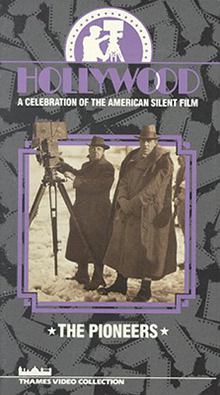
Hollywood is a British television documentary miniseries produced by Thames Television and originally broadcast on ITV in 1980. Written and directed by film historians Kevin Brownlow and David Gill, it explored the establishment and development of the Hollywood studios and their cultural impact during the silent film era of the 1910s and '20s. At the 1981 BAFTA TV Awards, the series won for Best Original Television Music and was nominated for Best Factual Series, Best Film Editing and Best Graphics.

Carl Davis was an American-born British conductor and composer. He wrote music for more than 100 television programmes (notably the landmark ITV series World At War and BBC's Pride and Prejudice, created new scores for concert and cinema performances of vintage silent movies and composed many film, ballet and concert scores that were performed worldwide, including the Liverpool Oratorio in 1991. Davis's publisher was Faber Music.

Kevin Brownlow is a British film historian, television documentary-maker, filmmaker, author, and film editor. He is best known for his work documenting the history of the silent era, having become interested in silent film at the age of eleven. This interest grew into a career spent documenting and restoring film. Brownlow has rescued many silent films and their history. His initiative in interviewing many largely forgotten, elderly film pioneers in the 1960s and 1970s preserved a legacy of early mass-entertainment cinema. He received an Academy Honorary Award at the 2nd Annual Governors Awards given by the Academy of Motion Picture Arts and Sciences on 13 November 2010. This was the first occasion on which an Academy Honorary Award was given to a film preservationist.

Queen Christina is a pre-Code Hollywood biographical film, produced for Metro-Goldwyn-Mayer in 1933 by Walter Wanger and directed by Rouben Mamoulian. It stars Swedish-born actress Greta Garbo and John Gilbert in their fourth and last film together.
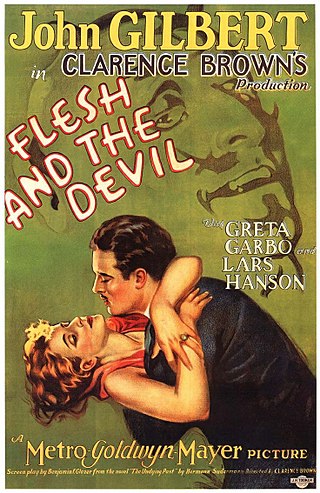
Flesh and the Devil is an American silent romantic drama film released in 1926 by Metro-Goldwyn-Mayer and stars Greta Garbo, John Gilbert, Lars Hanson, and Barbara Kent, directed by Clarence Brown, and based on the novel The Undying Past by Hermann Sudermann.

Cinema of Europe refers to the film industries and films produced in the continent of Europe.
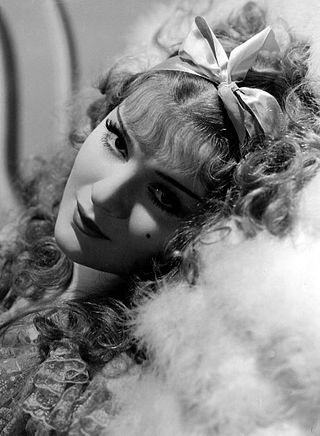
Anna Sten was a Ukrainian-born American actress. She began her career in stage plays and films in the Soviet Union, then traveled to Germany, where she starred in several films. Her performances were noticed by film producer Samuel Goldwyn, who brought her to the United States with the aim of creating a screen personality to rival Greta Garbo. After a few unsuccessful films, Goldwyn released her from her contract. She continued to act occasionally until her final film appearance in 1962.

The Temptress is a 1926 American silent romantic drama film directed by Fred Niblo and starring Greta Garbo, Antonio Moreno, Lionel Barrymore, and Roy D'Arcy. It premiered on October 10, 1926. The film melodrama was based on a novel by Vicente Blasco Ibáñez adapted for the screen by Dorothy Farnum.

J'accuse is a 1919 French silent film directed by Abel Gance. It juxtaposes a romantic drama with the background of the horrors of World War I, and it is sometimes described as a pacifist or anti-war film. Work on the film began in 1918, and some scenes were filmed on real battlefields. The film's powerful depiction of wartime suffering, and particularly its climactic sequence of the "return of the dead", made it an international success, and confirmed Gance as one of the most important directors in Europe.

Eye Filmmuseum is a film archive, museum, and cinema in Amsterdam that preserves and presents both Dutch and foreign films screened in the Netherlands.
David Ian Gill was a British film historian, preservationist and documentarian who documented the history of motion pictures and helped restore many early, silent films.

A film – also called a movie, motion picture, moving picture, picture, photoplay or (slang) flick – is a work of visual art that simulates experiences and otherwise communicates ideas, stories, perceptions, feelings, beauty, or atmosphere through the use of moving images. These images are generally accompanied by sound and, more rarely, other sensory stimulations. The word "cinema", short for cinematography, is often used to refer to filmmaking and the film industry, and the art form that is the result of it.
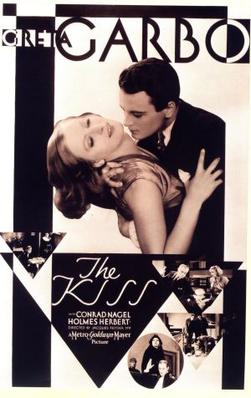
The Kiss is a 1929 American synchronized sound drama film directed by Jacques Feyder, starring Greta Garbo, Conrad Nagel, and Lew Ayres in his first feature film. The film has no audible dialogue but featured a synchronized musical score and sound effects. The soundtrack was recorded using the Western Electric Sound System sound-on-film process. The soundtrack was also transferred to discs for those theatres that were wired with sound-on-disc sound systems.
Photoplay Productions is an independent film company, based in the UK, under the direction of Kevin Brownlow and Patrick Stanbury. Is one of the few independent companies to operate in the revival of interest in the lost world of silent cinema and has been recognised as a driving force in the subject.
References
- ↑ Cinema Europe: The Other Hollywood, Part 1 - Where it All Began (1995), review in New York Times
- 1 2 Cinema Europe: The Other Hollywood at IMDb
- ↑ Douglas Pratt. Doug Pratt's DVD: Movies, Television, Music, Art, Adult, and More!, Volume 1, UNET 2 Corporation, 2004. pg. 252